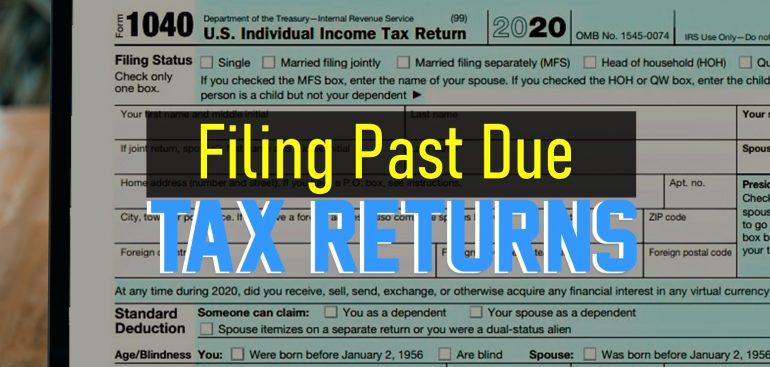Working in the U.S. on a TN Visa can be exciting — new job, new city, new opportunities. But when tax season arrives, many Canadians suddenly discover something unexpected. Here are SDG Accountants & Enrolled Agents explaining in detail about the TN Visa Taxes:
Taxes get complicated. Fast.
This guide explains TN Visa taxes in a clear, friendly way while showing where an accounting firm can help simplify the process. If you’re a Canadian working in the U.S. — or planning to — this is essential reading.
Do TN Visa Holders Pay Taxes in the U.S., Canada, or Both?
Here’s the reality:
- 👉 You may have to file taxes in the USA, Canada, or both countries.
- 👉 It does not depend on your TN Visa.
- 👉 It does depend on your tax residency.
Tax residency is determined differently in the U.S. and Canada. That’s why many TN professionals get confused — and why our firm often steps in to help.
Let’s break it down.
U.S. Tax Obligations for TN Visa Professionals
1. Are You a U.S. Tax Resident?
The USA uses the Substantial Presence Test (SPT). It’s based on how many days you’ve spent in the U.S. over the past 3 years.
- If you meet the test, you’re a U.S. tax resident.
- If you don’t, you file as a non-resident.
2. Some TN workers may qualify for exceptions:
- New arrivals
- Cross-border commuters
- Individuals claiming a “closer connection” to Canada
Understanding these exceptions can be tricky — having a tax accountant in Miami can help avoid costly mistakes.
3. What Taxes Do You Pay in the U.S.?
✔ Federal Income Tax
- Paid to the IRS.
✔ State Income Tax
- Depends on your state.
- Some states have no income tax, while others have high rates.
✔ FICA (Social Security + Medicare)
- Many TN workers pay this unnecessarily when they could be exempt with the proper Certificate of Coverage.
- Our firm reviews each case to confirm whether FICA should apply — because overpaying is incredibly common.
4. Required U.S. Tax Documents
To file correctly, you’ll need:
- W-2 from your U.S. employer
- I-94 travel record
- SSN (Social Security Number)
Missing or incorrect documents are among the most significant reasons TN taxpayers experience delayed refunds.
5. Which U.S. Tax Form Should You File?
- Form 1040 → U.S. tax residents
- Form 1040-NR → non-residents
Some TN workers file a dual-status return in their first year — something we handle frequently for clients.
Canadian Tax Obligations for TN Visa Workers
1. Are You Still a Canadian Tax Resident?
Canada looks at residential ties, such as:
- A home in Canada
- Spouse or dependents
- Provincial health care
- Canadian bank accounts
Even if you live in the U.S. for work, you might still be considered a Canadian tax resident.
Most people don’t realize this — until the CRA asks questions.
2. If You Remain a Canadian Resident
You must:
- Report your worldwide income, including U.S. wages
- Claim foreign tax credits to avoid double tax
Our firm ensures the credits are calculated accurately — because even a small mistake can lead to double taxation.
3. If You Become a Non-Resident of Canada
If you cut ties with Canada, you may qualify for non-resident status. In that case:
- You usually don’t pay Canadian tax on your U.S. salary
- But you may face a departure tax
We help clients determine the exact date of residency change and handle CRA departure filings.
Avoiding Double Taxation
This is the #1 concern for TN professionals — and understandably so.
Thankfully, the U.S.-Canada Tax Treaty protects you by:
- Determining which country gets to tax your income
- Allowing foreign tax credits
- Providing “tie-breaker” rules for unclear cases
Our firm specializes in treaty-based filings and Form 8833, which is required when claiming treaty benefits.
Common Tax Mistakes TN Visa Holders Make
We see these issues all the time:
❌ Filing the wrong U.S. form (1040 instead of 1040-NR)
❌ Paying FICA when exempt
❌ Not cutting enough ties to qualify as a non-resident of Canada
❌ Forgetting to file Canadian departure forms
❌ Not reporting U.S. income to Canada
❌ Missing foreign tax credits
Fixing these mistakes retroactively is possible — but resolving them early is much easier.
State Taxes Make a Big Difference

Where you work matters. A lot.
States with no income tax:
- Texas
- Florida
- Nevada
- Tennessee
- Washington
High-tax states:
- California
- New York
- New Jersey
We help clients compare state tax impacts before they relocate.
Smart Tax Planning Tips for TN Professionals
✅ Track your days in the U.S.
Everything depends on this.
✅ Know your residency before filing
Avoid IRS and CRA surprises.
✅ Review your investment accounts
RRSPs, TFSAs, and 401(k)s all have cross-border rules.
✅ Keep your documents organized
We provide clients with an annual checklist.
✅ Work with a firm that handles cross-border tax
This is not a good area for DIY tax software.

Understanding your tax residency, income rules, and filing obligations
Make life easier. Make billing transparent. Reduce stress.
TN Visa Tax FAQ
Sometimes yes. It depends on your residency and income source.
Absolutely — TN workers often get one.
Yes, but it may keep you taxable in Canada.
Yes, through foreign tax credits and treaty claims.
Yes — we prepare them for many TN clients every year.
Conclusion: Tax Rules Are Complicated — But They Don’t Have to Be
TN Visa workers face one of the most confusing tax situations:
Two countries, two tax systems, one income.
With proper planning — and the right accounting firm like our Miami Accountant team — you can file correctly, avoid double taxation, and keep more of your money.
Contact SDG Accountant & Enrolled Agents, and one of our Miami Tax Accountants will gladly help. If you need precise advice on your specific tax situation, you can also click below to get a consultation with one of our Miami tax professionals.






